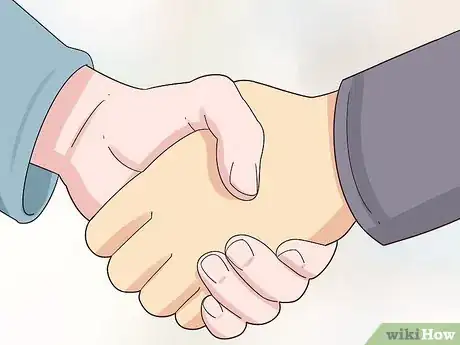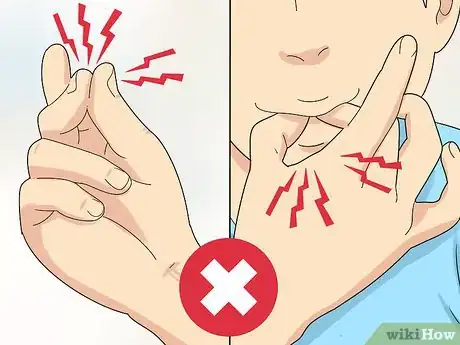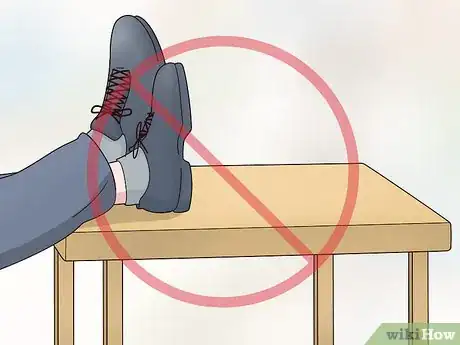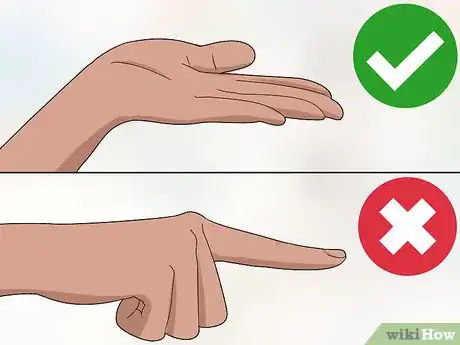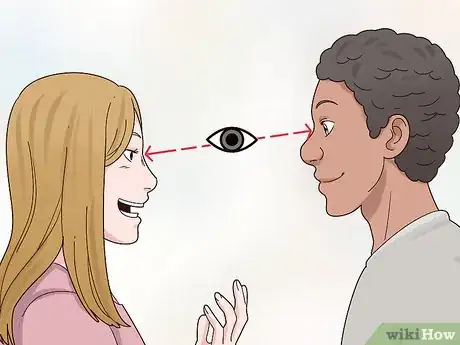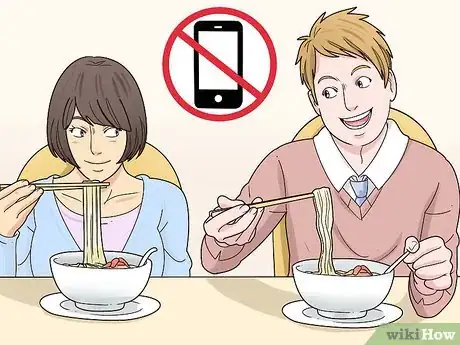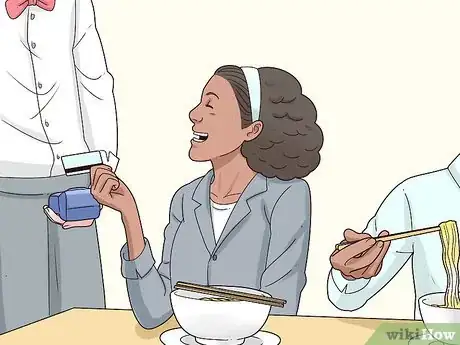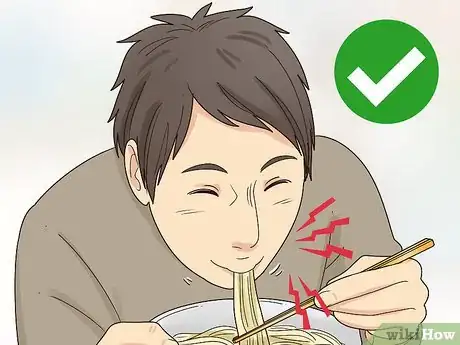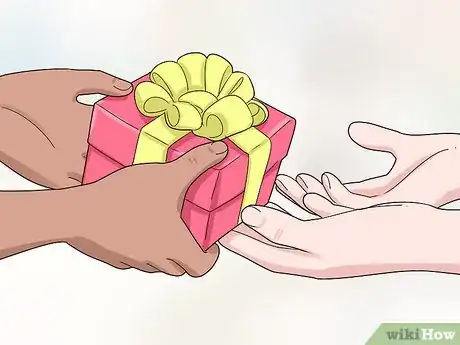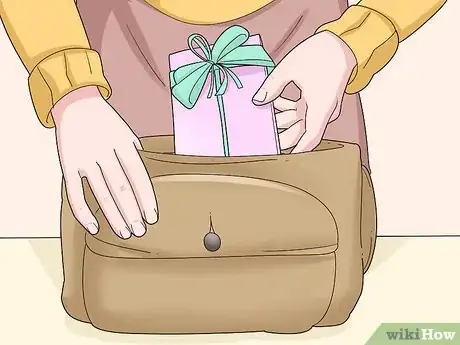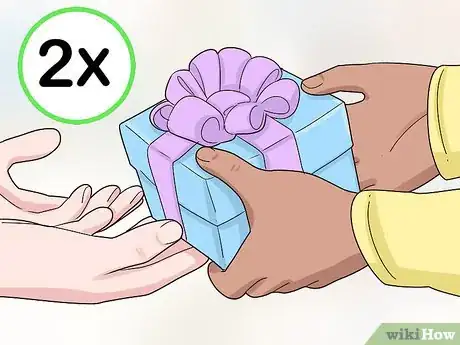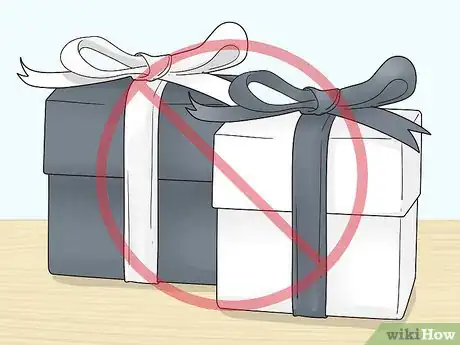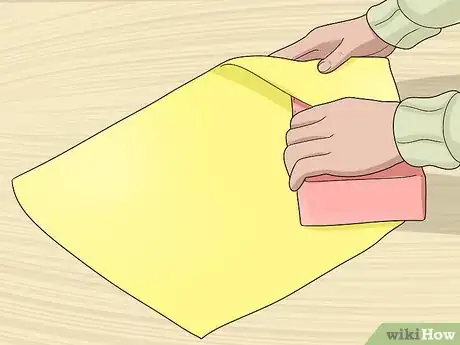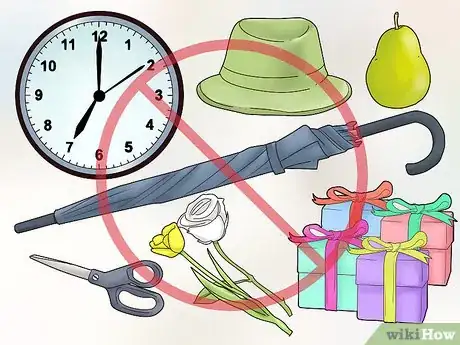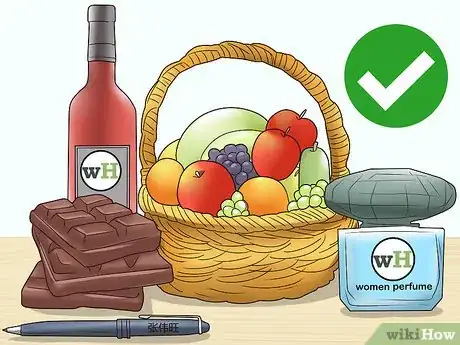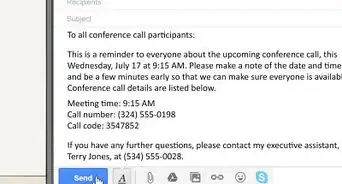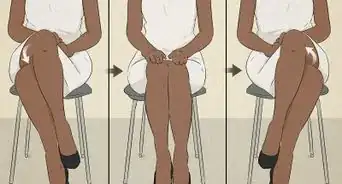X
wikiHow is a “wiki,” similar to Wikipedia, which means that many of our articles are co-written by multiple authors. To create this article, volunteer authors worked to edit and improve it over time.
This article has been viewed 17,224 times.
Learn more...
China is a vast country with many traditions and cultural beliefs. Whether you are visiting China for business or leisure, this article will help you behave properly in China. Just keep on reading!
Things You Should Know
- To show courtesy in Chinese culture, greet the oldest person first when you come into a room, shake hands and nod or bow when you meet people, and use an honorific like "Grandfather" or "Mr. Li."
- Try not to touch anyone else, as this is considered rude, but do make direct eye contact to show that you're paying attention.
- There are several things that are considered rude in Chinese culture but are usually acceptable in Western culture, like snapping, whistling, and pointing with your index finger.
- It's especially important to show good manners in a business setting, so be sure to be on time, always dress professionally, and respect the seniority and rank of the people in the group.
- At the table, always wait for the eldest person to start eating first, and never eat the last piece of food from the serving tray—but surprisingly, it's okay to slurp your soup from your spoon!
Steps
Method 1
Method 1 of 5:
Greeting Correctly
-
1Address adults by an honorific title.
- Those can include family relationship, occupation, or family name plus Mr. or Ms.
- Remember: Married women keep their maiden name.
- Use 您 (nín) to address adults. It is a polite way to say 'you'.
-
2Give a handshake.
- It is also common to give a nod.
- Bowing is a sign of respect.
Advertisement -
3Greet the eldest person first. The eldest person is always greeted first, as a sign of respect.
Advertisement
Method 2
Method 2 of 5:
Respecting Personal Space
-
1Do not touch other people. The Chinese dislike being touched by strangers and people they know. They need personal space.
- Do not touch, hug, lock arms, back slap or make any body contact.
-
2Do not click your fingers or whistle. These actions are considered very rude.
-
3Do not put your feet on a desk or a chair.
- Additionally, never gesture or pass an object with your feet.
-
4Point with an open hand.
- Never point with an index finger. It is consider extremely rude.
-
5Make direct eye contact. It shows that you are interested.
-
6Expect to see public spitting. Spitting in public is quite common.
Advertisement
Method 3
Method 3 of 5:
Using Business Etiquette
-
1Be punctual. Being on time is especially important in a business setting.
- Meetings and events always begin on time.
- It is common, though, for a boss or a person with a higher social or political status to be late.
- It is rude to be late in business situations.
- Planes and trains schedules tend to be on time, but bus schedules may not be kept at all times.
-
2Dress conservatively.
- Dark in medium-colored, conservative suits with shirts and ties. This would be an appropriate look for men.
- Conservative business suits or dresses and blouses are appropriate for women. Avoid low necklines, high-heels and tight-fitting or sleeveless attire. Those are not considered suitable for business occasions.
- Jeans and business casual attire are not recommended at a first meeting.
- In warmer months, slacks and collared shirts are usually acceptable.
-
3Exchange business cards upon meeting.
- Business cards should be printed in English on one side and Chinese on the other.
- Make sure the Chinese side uses "simplified" characters and not "classical" characters, which are used in Taiwan and Hong Kong.
- Give and receive business cards with both hands. It is polite to look at business cards after you receive them with interest by examining them carefully.
- Never write on or fold a business card you are given. It is considered very rude.
-
4Expect Chinese to be spoken at business meetings. English is not spoken in business meetings, although some Chinese may understand English without making it known. Hire an interpreter or ask for one to be provided.
-
5Wait for higher-ranking professionals to enter the meeting first. The Chinese will enter a meeting with the highest-ranking person entering first, then the second, and so on.
- They will assume the first member of your group to enter the room is the leader of your delegation.
- The senior Chinese person welcomes everyone.
- The foreign leader introduces his/her team, and each member distributes his/her card. The leader invites the Chinese to do the same.
-
6Observe standard business seating. Seating is very important at a meeting.
- The host sits to the left of the most important guest.
-
7Allow for silence at the meeting. There may be periods of silence at a business meeting. Do not interrupt them.
-
8Observe seniority and rank. This is extremely important in business.
- Do not insult the Chinese by sending someone with a low rank.
Advertisement
Method 4
Method 4 of 5:
Dining Etiquette
-
1Let the elder eat first.
- It is considered polite to go with the elder's paces, so wait for the elder to eat first and then start eating too.
- You may also hear the elder say: Lets eat. Only then should you start eating.
-
2Concentrate on the meal and your companions.
- Watching television, using your phone, or carrying on some other activity while having a meal is considered a bad habit.
-
3Always be on time.
-
4Know who pays the bill. The person who invites everyone usually pays all the bills.
- Avoid "going Dutch". In the Chinese culture the person who invites everyone pays all the bills.
- It is polite, though, to try and pay the bill even as a guest.
-
5Don't be afraid to slurp. Slurping is acceptable.
- By slurping, you are actually complimenting the cook for their tasty food.
-
6Never eat the last piece from the serving tray. It is considered bad luck.
Advertisement
Method 5
Method 5 of 5:
Gift-Giving Etiquette
-
1Present a gift with both hands.
-
2Save the gift for later. Gifts are generally not opened upon receiving them.
- Always give a gift to everyone present or don't give gifts at all.
-
3Offer a gift twice. Older Chinese usually refuse a gift at first to be polite. Offer it a second time if this happens.
-
4Avoid white and black colored gifts.
- White is symbolic of death, especially of parents, and black symbolizes tragedy or death.
-
5Wrap your gift in light colored wrapping.
- The best possible wrapping papers are yellow, pink and red, which are lucky colors.
- Do not wrap gifts in white, blue or black paper.
-
6Avoid giving the following:
- Clocks —they symbolise death.
- Green hats- —the Chinese phrase “dài lǜ màozi” or “to wear a green hat” denotes being cheated on by one’s unfaithful wife.
- Umbrellas — the Chinese word for umbrella, sǎn, sounds like the word sàn, which means “to separate”.
- Scissors or sharp objects — these also symbolize severing relations.
- Pears — the Chinese word for “pear” has the same pronunciation as the one for “divorce”.
- White or yellow flowers — these are commonly used funeral flowers in China. Especially chrysanthemum.
- Gifts in four —four is an unlucky number so do not give four of anything. Eight is the luckiest number, so giving eight of something brings luck to the recipient.
-
7Know what makes a good gift. Some good gift ideas include the following:
- Good quality pens , especially engraved ones.
- A nice fruit basket would make a wonderful gift for someone who is ill.
- Chocolates and sweets are a good fit for children.
- An expensive-looking perfume for a woman.
- A drink or chocolates when visiting someone.
Advertisement
Warnings
- It is considered disrespectful to stare into another person's eyes. In crowded situations, the Chinese avoid eye contact to give themselves privacy.⧼thumbs_response⧽
- Frowning while someone is speaking is interpreted as a sign of disagreement. Therefore, most Chinese maintain an impassive expression when speaking.⧼thumbs_response⧽
- Avoid wearing bright-colored clothes.⧼thumbs_response⧽
Advertisement
References
About This Article
Advertisement

